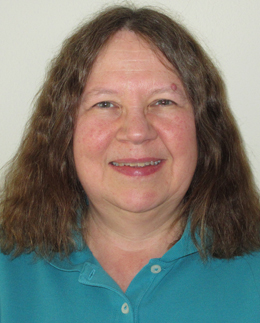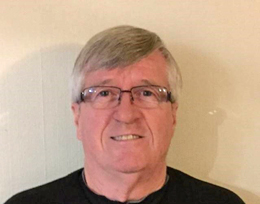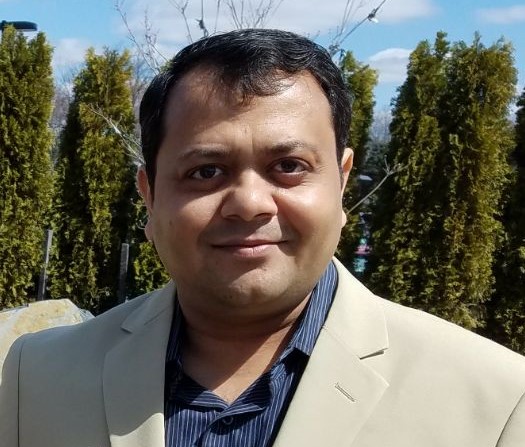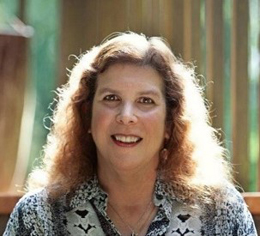
Karla is a registered Professional Geologist with more than 30 years of experience with remedial investigation, remediation management, and oversight activities at a variety of CERCLA and Federal Facility sites. Her expertise includes design, management, and coordination of hazardous waste investigations and remediation involving: geophysics; hydrogeology; surface water, sediment, soil/soil gas, and groundwater contaminated with multiple constituents, including PFAS, 1,4-Dioxane, arsenic, perchlorate and chromium. She is experienced with evaluating and implementing remediation technologies including: in-situ bioremediation (ISB); in-situ chemical reduction (ISCR); in-situ chemical oxidation (ISCO); monitored natural attenuation (MNA); and trap-and treat technologies. She has provided expert consulting services to U.S. EPA for environmental issues related to military base closures, particularly in EPA Region 9. She has provided EPA with assistance at the Hunters Point Shipyard in overseeing remedial investigations, treatability studies, feasibility studies, remedial actions, and removal actions for a wide variety of sites, including a former industrial landfill, a debris disposal area, former oil ponds, dry docks, off-shore sediments, and various industrial sites with chlorinated solvent, metals, PCBs, discarded radiological devices, radionuclides, and other contamination. Karla holds an MS in Geophysics from the University of Minnesota and a BS in Physics from Case Institute of Technology.

J.C. has more than 40 years of experience in planning, performing, and overseeing activities related to Munitions and Explosives of Concern (MEC), Munitions Constituents (MC), Unexploded Ordnance (UXO) and Material Presenting a Potential Explosive Hazard (MPPEH). A retired US Army Colonel (Ordnance Corps), he has performed analysis and developed policy at the Army and Department of Defense level related to: munitions-life-cycle management; explosives and chemical safety; unexploded ordnance (UXO); waste military munitions (including discarded military munitions); underwater munitions; the conduct of munitions responses (the cleanup of munitions and explosives of concern, to include chemical munitions); support of explosives and munitions emergencies; and sustainable range management. He has been the Army lead for development of policy governing DoD's Military Munitions Response Program (MMRP), DoD's Implementation of the Environmental Protection Agency's Military Munitions Rule, the Military Munitions Response Prioritization Protocol (32 CFR, Part 179) and its accompanying training program and primer; and DoD and Army policy for the management of MPPEH. He has also been responsible for developing both DoD explosives safety criteria governing UXO, the processing and management of MPPEH, munitions responses; and the Army's 3Rs (Recognize, Retreat, Report) Explosives Safety Education Program. He provides MEC technical support to EPA regions across the country. JC holds an MA in Human Resource Management from Webster University and a BA in Social Services from Temple University.

Dharmesh is the lead analytical chemist and contract manager for TechLaw’s U.S. EPA Region 2 Environmental Services Assistance Team (ESAT) contract in Edison, N.J. He has conducted analysis for inorganic parameters using a variety of instrumentation and is an expert in various EPA methods. He has supervised a team of analysts and conducted scheduling, instrument maintenance, method development, training, troubleshooting, and reporting. He has also conducted data review, data validation, and field sampling activities. He also has specialized knowledge in pharmaceutical analysis, pharmacology and medicinal chemistry, formerly serving as a Quality Control analyst for a major pharmaceutical manufacturer. He has expertise in drug assays based on United States Pharmacopeia (USP) guidelines, as well as pharmacy regulatory compliance. Dharmesh hold an MS in Strategic Leadership, from Mountain State University and a BS in Pharmacy from Shree S.K. Patel College of Pharmaceutical Education and Research.

Dr. Ann Schnitz is an environmental toxicologist/risk assessor with three decades of experience performing, managing, and developing numerous human health and ecological risk assessments for various governmental and commercial clients under state and federal jurisdictions. She has written and reviewed human health and ecological risk assessments under the auspices of RCRA, CERCLA, SDWA, TSCA, CAA, and other tribal, federal, state and local regulatory programs for contaminated sites (Superfund, refineries, manufacturing facilities, vapor intrusion sites, manufactured gas plants, e.g.), and participated in litigation support, communications and negotiations. These risk assessments have involved a variety of media (soil, groundwater, surface water, ambient air, indoor air, vapor intrusion) and a range of constituents, including: total petroleum hydrocarbon, pesticides, solvents, metals, PAHs, PCBs, and explosives. She has nationwide experience in planning for defensible sampling, and assessing data usability and integrity to support human health and ecological exposure, as well as the fate and transport of contaminants in environmental systems. She has extensive experience implementing modeling including Johnson and Ettinger (J&E) and EPA/ASTM exposure equations. Ann holds a PhD in Toxicology from Rutgers University and an MS in Toxicology and a BA in Biology from New York University.

Bill is a Certified Industrial Hygienist (CIH) and Certified Health Physicist (CHP) with more than 40 years of professional experience in radiological and industrial hygiene activities, with an emphasis on systems to minimize personnel exposures to hazardous and radioactive materials, compliance with federal and state regulations, and site and facility audits. He has developed, implemented and supervised comprehensive site-specific health and safety programs and provided oversight to perform safety and occupational health management. He has developed and implemented comprehensive health physics programs for US Nuclear Regulatory Commission-licensed programs and decommissioning projects and has broad working knowledge of RCRA, CERCLA, EPA, NRC and DOE guidance, directives and standards, as well as multi-agency guidance documents such as the Multi-Agency Radiation Survey and Site Investigation Manual (MARSSIM) and the Multi-Agency Radiological Laboratory Analytical Protocols Manual (MARLAP). He has more than 15 years of experience working with Federal Facilities, providing environmental radiation expertise at numerous locations. Bill holds an MS in Environmental Health from the University of Oklahoma and a BS in Health Physics from Oklahoma State University.

Scott is an analytical chemist and is the Program Director for TechLaw’s EPA Environmental Services Assistance Team (ESAT) contracts in EPA Regions 1, 2, 8, and 10 (currently valued at more than $40 million). He also provides direct supervision of all analytical chemistry, data management, air monitoring, GIS, and field work performed in EPA Regions 8 and 10 under ESAT. He supervises and interacts with team managers and subcontractors, working regularly with EPA project and contract officers. His technical expertise covers a range of analytical chemistry operations and procedures, including field sampling and analysis, quality assurance/quality control (QA/QC), data validation and emergency response. He is well-versed in state and federal regulatory issues governing hazardous waste remediation, oversight, and enforcement. He has extensive experience developing and utilizing analytical methods in his work, and his management experience also includes demonstrated expertise in establishing, overseeing and performing with mobile laboratory operations, in addition to fixed laboratory operations. Scott holds a BA in Molecular, Cellular, and Developmental Biology from the University of Colorado-Boulder.
